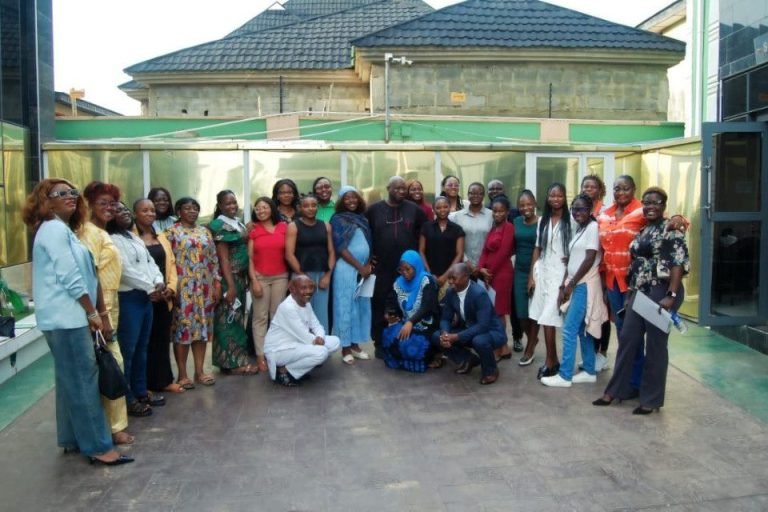Participants, made up of media professionals and representatives of civil society organisations from different states across the South-West geo-political zone of Nigeria, have urged governments to institutionalise transparency initiatives and mechanisms, including appointing dedicated Freedom of Information (FOI) desk officers, ensuring regular reporting as required by law, adopting effective procedures for processing requests for information, and sanctioning officials who disregard or otherwise fail to comply with the provisions of the FOI Act.
The participants made these and other recommendations at a two-day Freedom of Information (FOI) training workshop for journalists and representatives of civil society organisations, held by Media Rights Agenda with support from Luminate.
The workshop, which took place in Lagos on November 12 and 13, 2025, was aimed at enhancing the participants’ understanding of the FOI Act, including its provisions and how to put it to effective use in the course of their professional duties; equip participating journalists and civil society actors with practical skills for making effective requests for information under the Act; engender greater public awareness and use of the Act as a mechanism for ensuring good governance in Nigeria, as well as foster and strengthen collaboration between journalists and civil society actors in using the Act, including for investigative journalism, advocacy, and accountability initiatives.
The workshop had in attendance 33 participants, drawn from media professionals in broadcast, print, and online media outlets, as well as civil society organisations.
Sessions at the workshop comprised plenary sessions, expert presentations, and practical exercises, including analysis of key provisions of the FOI Act and related jurisprudence; hands-on drafting of FOI requests and other simulated exercises; how to use responses to FOI requests for reporting and advocacy; as well as monitoring government’s implementation and compliance with the provisions of the Act.
The participants reviewed the state of FOI implementation in Nigeria and expressed concern that, nearly 15 years after the law came into force, compliance by public institutions remains weak and inconsistent. They noted that many government agencies still operate in secrecy, fail to meet proactive disclosure and annual reporting obligations, and frequently ignore or unjustifiably deny requests for information.
They also observed that awareness and usage of the Act by citizens, journalists, and CSOs remain low due to poor public education, resistance within government institutions, and limited political will to advance transparency and accountability. They added that many public officials still lack an adequate understanding of their responsibilities under the Act.
Participants emphasised the critical role of the media and civil society in using the FOI Act to demand information and hold public officials accountable, urging journalists and CSOs to incorporate FOI requests more strategically into investigative reporting, advocacy, and monitoring initiatives.
The participants recommended that stakeholders, particularly journalists and civil society actors, should leverage digital technology to track requests, analyse disclosed data, and make information more easily available to members of the public in order to ensure the full realisation of the purpose of the Act. Further to this, public institutions should also develop and adopt digital tools and platforms that will simplify information requesting procedures and the processing of requests for information.
They commended Media Rights Agenda for its commitment to promoting freedom of information, media freedom, and accountability in Nigeria. They expressed appreciation to the facilitators and sponsor that supported the successful hosting of the workshop.
Lastly, the participants reaffirmed their commitment to working collaboratively to advance the effective implementation of the FOI Act and to uphold the public’s right to know as a cornerstone of democracy and good governance.
Please download and read the full communiqué here.





